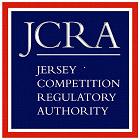Telecommunications in Sudan includes fixed and mobile telephones, the Internet, radio, and television. Approximately 12 million out of 45 million people in Sudan use the Internet, mainly on smartphones and mobile computers.
Modern telecommunications in Thailand began in 1875 with the deployment of the first telegraph service. Historically, the development of telecommunication networks in Thailand were in the hands of the public sector. Government organisations were established to provide telegraph, telephone, radio, and television services, and other government agencies, especially the military, still control a large estate of radio and television spectra. Private telecommunication operators initially acquired concession agreements with state enterprises. For mobile phone services, all the concessions have been amended by successive government to last 25 years have gradually ended in 2015. For other services, the concession terms and conditions vary, ranging from one to fifteen years. Nearly all of the concessions are build-operate-transfer (BTO) contracts. The private investor has to build all the required facilities and transfer them to the state before they can operate or offer services to public.

The Independent Television Commission (ITC) licensed and regulated commercial television services in the United Kingdom between 1 January 1991 and 28 December 2003.

The Federal Network Agency is the German regulatory office for electricity, gas, telecommunications, post and railway markets. It is a federal agency of the Federal Ministry for Economic Affairs and Climate Action and headquartered in Bonn, Germany.

The Independent Communications Authority of South Africa (ICASA) is an independent regulatory body of the South African government, established in 2000 by the ICASA Act to regulate both the telecommunications and broadcasting sectors in the public interest.

Emirates Integrated Telecommunications Company P.J.S.C., commercially rebranded as du in February 2007, is one of the two main telecom operators in the United Arab Emirates. du offers fixed line, mobile telephony, internet and digital television services across the UAE. It also provides carrier services, a data hub, internet exchange facilities and satellite service for broadcasters. It expanded its services in support of economic and social transformation of UAE and operates subsidiaries such as EITC Investment Holdings Limited, Edara, Smart Dubai Platform Project Company LLC and EITC Singapore PTE. LTD.
In communication, media are the communication outlets or tools used to store and deliver content. The term generally refers to components of the mass media communications industry, such as print media, publishing, the news media, photography, cinema, broadcasting, digital media, and advertising.

The Electricity Regulatory Authority (ERA) is a government agency that regulates, licenses, and supervises the generation, transmission, distribution, sale, export, and importation of electrical energy in Uganda.
The Autorité de Régulation des Communications Électroniques, des Postes et de la Distribution de la Presse is an independent French agency in charge of regulating telecommunications, postal services and print media distribution in France. It can be compared somewhat with the United States' Federal Communications Commission (FCC), though regulation of the radio spectrum falls to the Agence nationale des fréquences, and regulation of audiovisual and digital communication falls to the Autorité de régulation de la communication audiovisuelle et numérique since the merger on 1 January 2022 of the former Conseil supérieur de l'audiovisuel and the former Haute Autorité pour la diffusion des œuvres et la protection des droits sur internet. The ARCEP has its head office in 14 rue Gerty Archimède in Bercy, Paris, France.

The Jersey Competition Regulatory Authority (JCRA) is the competition, postal, and telecommunications regulatory authority for Jersey, a British Crown Dependency located in the English Channel.
The Georgia Public Service Commission (PSC) is a statutory organ of the state government of Georgia; elected among five commission districts, the board consists of a Chairman, a Vice-chairman, and three Commissioners. PSC regulates telecommunications, transportation, electric and natural gas services in the U.S. state of Georgia. Commissioners are elected in partisan elections statewide, though they must reside in a district.
Botswana Telecommunications Authority (BTA) is a dissolved independent commission that was responsible for regulating all matters related to telecommunications, postal services of Botswana and has been succeeded by Botswana Communications Regulatory Authority. The Minister appoints all five board members, who serve on a part-time basis. The BTA is mandated to promote the development and provision of efficient telecommunications and broadcasting services in Botswana, under the terms of the Telecommunications Act 15 of 1996. There have been legal disputes between the BTA and licensed operators, springing from issues related to interconnection and pricing.
Botswana Communication Regulatory Authority (BOCRA) is a government agency founded under the Communications Regulatory Authority Act, 2012 (CRA Act) on the 1st of April 2013. BOCRA is responsible for regulating all matters related to telecommunications (wire, cellular, satellite and cable), postal services of Botswana.
The Autorité de Régulation des Communications Électroniques et des Postes (ARCEP) is an independent agency in charge of regulating telecommunications and postal services in Burkina Faso.
The Autorité de Régulation des Communications Électroniques et des Postes (ARCEP) is an independent agency in charge of regulating telecommunications and postal services in Gabon.
The Autorité de Régulation des Communications Électroniques et de la Poste (ARCEP) is an independent agency in charge of regulating telecommunications and postal services in Benin.
The Autorité de Régulation des Communications Électroniques et des Postes (ARCEP), formerly named Autorité de Réglementation des secteurs de Postes et de Télécommunications (ART&P), is an independent agency in charge of regulating telecommunications and postal services in Togo.





